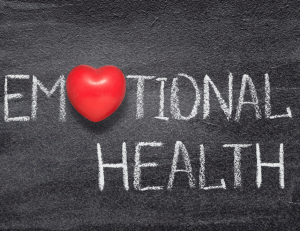 Adrenal Fatigue
Adrenal Fatigue
Your adrenal glands play a critical role in mental health. They sit on top of your kidneys and help you cope with stress by producing chemicals such as cortisol, norepinephrine and adrenaline.
During stressful periods, your adrenal glands release certain chemicals in large amounts. These chemicals cause your heart to beat faster, your breathing to increase, sugar to be released into your blood for energy, and an increase in blood flow to your muscles and brain to give them more oxygen and nutrients. As we’ve learned, this state is called the ‘fight or flight’ response and developed in humans and animals as a primal response to threat and fear. This primal response still kicks in when we experience stress today.
Unfortunately, in today’s world, many of us are under constant stress from work, bills, traffic, relationships, unresolved emotions and other pressures. Your body does not distinguish modern forms of stress from the threat of an animal coming to eat you – It’s all about survival.
Our primal stress response system is designed to handle short bursts of stress. The chemical spikes that occur during the ‘fight or flight’ response are designed to return to normal once the source of stress has passed – typically in a few moments. Modern stressors, such as those named above, can last for many days, weeks or even years. The resulting wear and tear on our bodies has significant health repercussions. Chronic stress is unnatural for our bodies and it drives our adrenal glands into exhaustion.
Other issues can lead to adrenal burnout, including poor diet, lack of exercise, long-term caffeine use, high sugar intake and environmental toxicity. Your adrenal glands regulate your blood sugar, immune function, sex hormones, salt and electrolyte balance and many other functions in your body. Adrenal fatigue, or hypoadrenia, is now a common ailment in our society and is associated with many chronic health problems, including anxiety, depression, chronic fatigue, poor immunity, heart disease, high cholesterol, high blood pressure, frequent colds, hormonal imbalances, insomnia, low sexual performance and interest, and thyroid problems
There are three phases of adrenal fatigue. The first two, called alarm and adaptation, are when cortisol, adrenaline and norepinephrine are produced in large amounts. With prolonged stress, your adrenal glands do not switch off and high levels of cortisol are produced continuously. High amounts of cortisol suppress dopamine, serotonin and melatonin – the feel-good hormones. This causes anxiety, increased fears, palpitations, poor sleep, and a general sense of unease. It also causes blood sugar imbalances and cravings for carbohydrates, salt and stimulants such as coffee.
The last phase, known as the exhaustion phase, is when your adrenal glands are completely burnt out and can no longer regulate the production of hormones. Hormone levels begin to cycle improperly – spiking at times, but being significantly low most of the time. This leads to depression, chronic fatigue, difficulty with concentration, insomnia, low motivation, blood sugar imbalance and chronic illnesses. During adrenal fatigue, your ability to deal with stress is significantly impaired. This means that the smallest amounts of stress make you feel anxious or tearful and lead to emotional reactions that you would not normally have in small stressful situations.
Sugar & Your Adrenal Glands
Eating high amounts of simple sugars such as those found in donuts, crackers, white bread, pastries and sweets causes your blood sugar to rise. In response, your body produces insulin to move the sugar from your blood to your tissues to store as fat, or to your liver to be stored for fuel. When insulin levels are high, your adrenal glands secrete high amounts of hormones to bring your insulin levels back down to normal.
These continuous hormone surges exhaust your adrenal glands and create unstable blood sugar levels. This results in less sugar (energy) reaching your brain, which in turn causes foggy thinking, fatigue, poor concentration, irritability and other mood disturbances. A diet rich in proteins, which are digested more slowly than simple sugars, ensures a steady and slow release of nutrients into your bloodstream, minimizes insulin and cortisol spikes, and prevents adrenal fatigue. Nutrition affects hormones and hormones affect emotions.
Melatonin, Sleep & Your Adrenal Glands
Melatonin is a hormone that helps your body calm down and is essential for sleep. Melatonin levels naturally rise at night. Excessive cortisol suppresses melatonin production. Under normal circumstances, cortisol levels naturally decrease at night to allow melatonin to increase. When cortisol levels remain elevated due to adrenal stress, this prevents a sufficient rise in melatonin and interferes with sleep. Poor sleep patterns exacerbate anxiety and depression because your body doesn’t get the rest it needs to recover from stress. As sleep patterns worsen, so does adrenal fatigue, which worsens sleep patterns, anxiety and depression – a vicious cycle.
The Role of Proper Nutrition
Nutrients such as proteins, vitamins A, C, E and B Complex, cholesterol, essential fatty acids and essential minerals are essential for adrenal health. They are also essential for the production of neurotransmitters and hormones in your body, and for the proper functioning of all your organs. Your adrenal glands use up a lot of these nutrients during chronic stress, taking a disastrous toll on your emotional and physical health. The irony is that when we are stressed, we are less likely to make the healthy food choices that provide the exact nutrients our bodies need.
Treating Your Adrenal Glands
Your choices and lifestyle habits matter. Below are steps you can take to preserve your adrenal glands and prevent further exhaustion:
- Resolve traumatic or stressful emotional experiences through psychotherapy, counseling or by using the mental exercises we discussed last session.
- Avoid stressful lifestyle habits like excessive caffeine, sugar, alcohol, recreational drugs, late nights, negative relationships and stressful jobs.
- Keep a regular routine of sleeping and eating. Your adrenal glands release specific hormones at specific times of the day. They are very sensitive to when you eat, when you rest, when you exercise and when you sleep. Sporadic meal times, sleep times and activity force your adrenal glands to work out of their natural rhythm and depletes them.
- Eat nutrient-rich meals high in healthy proteins and fresh fruits and vegetables. Avoid large amounts of refined sugar and caffeine.
- Exercise daily. Regular exercise is one of the most crucial cures for depression because it alters you brain chemicals more permanently than many medications can.
- Practice Mindfulness-Based Stress Reduction (MBSR) exercises daily. Activities like meditation, yoga and breathwork, done on a regular basis, are known to help relieve stress, treat heart disease, lower blood pressure, reduce chronic pain, improve sleep, and alleviate gastrointestinal difficulties.
- Your body’s need for nutrients is increased during periods of prolonged stress. Consult with a qualified practitioner regarding specific foods and supplements that can help heal your adrenal glands.
Our physical and emotional well-being are intimately connected. The good news is that our choices significantly impact our outcomes. We have incredible power to maximize our overall health and sense of wellbeing.
Does this all sound a bit overwhelming? We’re here to help you. Contact us for your free consultation today.
Cathy Abreu, RN, BCPA
President & CEO
Navita Health Advocates
908-528-3977
www.NavitaHealth.com
Cathy@NavitaHealth.com


0 Comments